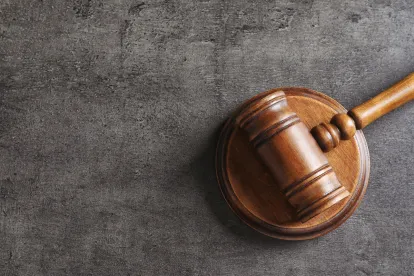In Red Diamond, Inc. v. Southern Visions, LLP, to overcome accusations of obviousness, the patent owner filed two motions to amend and offered evidence of objective indicia of nonobviousness. None was enough, however, to save the claims of its challenged patents.
Red Diamond petitioned for inter partes review of three of Southern Visions’ patents, each directed to a brewing device for tea and other sweetened beverages, as well as methods of making such beverages. The claimed brewing device included a mesh container filled with a prescribed ratio of tea to sugar that would then be dissolved in a separate container and further diluted in water to produce the completed beverage. The patents claimed a range of sugar granule particle sizes specific to the disclosed mesh.
Rather than filing a Patent Owner’s Response, Southern Visions filed a motion to amend in each IPR proceeding, proposing substitute claims. However, the Board agreed with the petitioner that the proposed substitute claims for each patent were unpatentably obvious.
Southern Visions then tried again, filing a revised motion to amend in each proceeding. Red Diamond opposed this motion in each case, arguing that the newly proposed substitute claims sought to introduce new matter, were indefinite, and/or were obvious.
First, Red Diamond argued that some of the proposed substitute claims introduced a new limitation: a Brix value (a measure of every 1 gram sugar in 100 grams solution) of at least 10.5 degrees Brix. The Board agreed, finding that Southern Visions lacked disclosure of the structural features (i.e., sugar granule particle size) necessary to produce a tea with a Brix of at least 10.5 degrees. Further, the Board found, Southern Visions had not reasonably conveyed to those skilled in the art that it had possession, as of the filing date, of a brewing product capable of producing such a tea.
Second, Red Diamond argued that some of the proposed substitute claims were invalid for indefiniteness because the claims made no reference to a particular sugar particle size. Rather, the claims referred to either “typical grocery store sugar” or “Sugar in the Raw®” brand sugar. The evidence, however, showed variance among the particle size of typical grocery store sugar and Sugar in the Raw®. As a result, the Board concluded that the skilled artisan would not have understood the claim limitations “typical grocery store sugar” or “Sugar in the Raw®” to identify sugars having particles of a particular size, with sufficient specificity, to allow the comparisons that the proposed claims required.
Finally, Red Diamond challenged other proposed substitute claims as obvious. Red Diamond pointed to prior art that disclosed a system for preparing high-quality tea extract using espresso technology; teabags that combined sugar and tea together; and an invention that extracts soluble constituents from solid particles. In response, Southern Visions contended that the prior art references were not analogous, were non-enabling, were not pertinent to the problem the inventors were trying to solve or taught away from the claimed particle size range. The Board disagreed with Southern Visions, finding that the prior art would have taught a skilled artisan each of the claimed limitations. Thus, the Board found, the proposed substitute claims were obvious.
Southern Visions presented evidence of objective indicia of non-obviousness, including evidence that its patents satisfied a long-felt but unmet need, showed commercial success, were copied by Red Diamond, had met with skepticism in the industry, and showed unexpected results. But further evidence revealed that Southern Visions’ objective indicia were not actually tied to any products covered by the proposed substitute claims. Even so, the evidence of objective indicia was found to be unpersuasive because it was supported only by “anecdotal declaration testimony,” which the Board found insufficient.
In sum, the Board denied Southern Visions’ revised motions to amend in each proceeding, including all proposed substitute claims.



 />i
/>i
